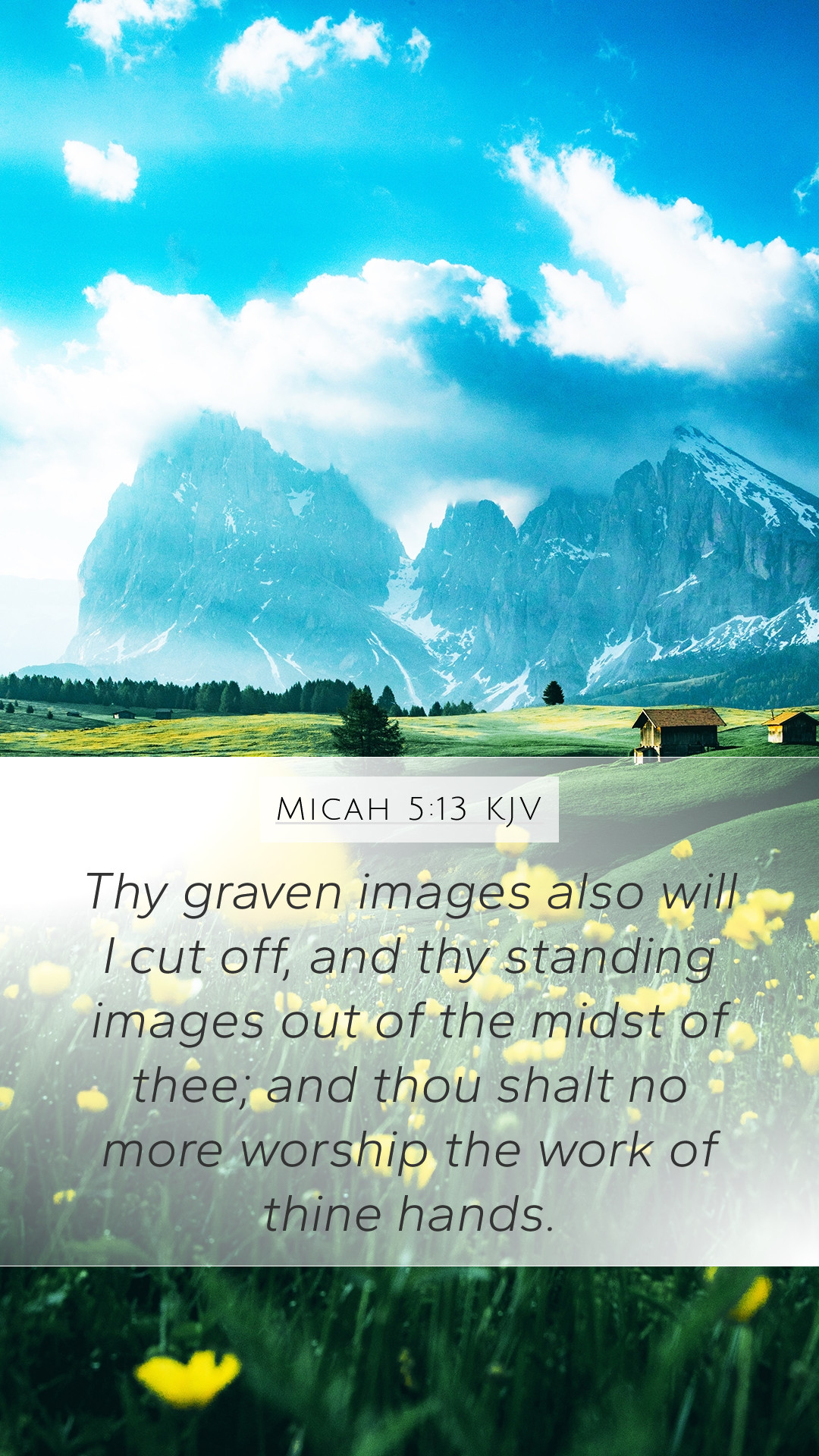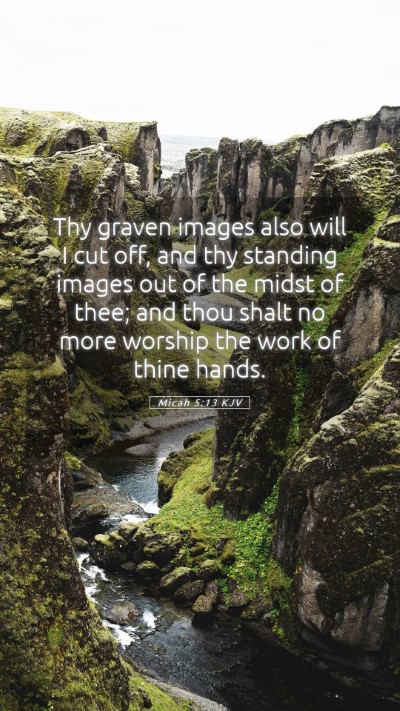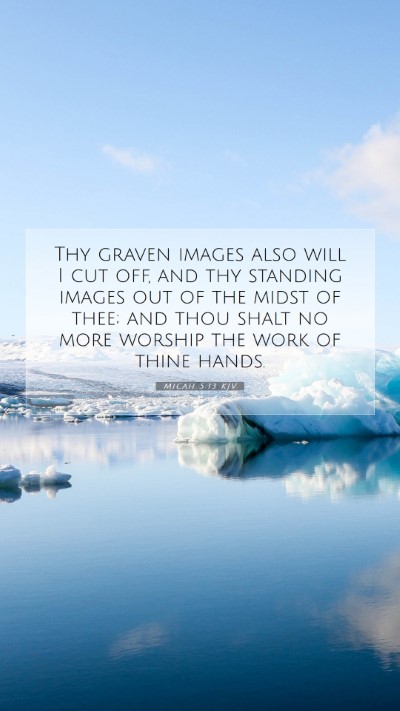Old Testament
Genesis Exodus Leviticus Numbers Deuteronomy Joshua Judges Ruth 1 Samuel 2 Samuel 1 Kings 2 Kings 1 Chronicles 2 Chronicles Ezra Nehemiah Esther Job Psalms Proverbs Ecclesiastes Song of Solomon Isaiah Jeremiah Lamentations Ezekiel Daniel Hosea Joel Amos Obadiah Jonah Micah Nahum Habakkuk Zephaniah Haggai Zechariah MalachiMicah 5:13 Meaning
What is the meaning of Micah 5:13?
Thy graven images also will I cut off, and thy standing images out of the midst of thee; and thou shalt no more worship the work of thine hands.
Micah 5:13 Bible Verse Meaning
Understanding Micah 5:13
Micah 5:13 states: "Your carved images I will destroy, and your pillars from among you; and you shall bow down no more to the work of your hands." This verse serves as a prophetic message reflecting God's judgment upon the idolatry prevalent in Israel. Below, we explore the significance and interpretation of this verse using insights from various public domain commentaries.
Bible Verse Explanations
This scripture is situated within the context of Micah’s prophecies concerning the future judgment and ultimate restoration of Israel. The chapter emphasizes the coming ruler from Bethlehem, pointing towards the Messiah, highlighting the contrast between true worship and idolatry.
Commentary Insights
-
Matthew Henry:
Henry emphasizes that Micah’s prophecy is a clear denunciation of idolatry. He interprets God’s promise to destroy the carved images and pillars as a divine act to purify Israel from the corrupt influences of foreign practices. The work of their hands symbolizes human efforts in idol-making, which are rendered worthless before God. Henry encourages believers to reflect on the idolatrous tendencies in their hearts.
-
Albert Barnes:
Barnes expounds on the implications of this verse as a warning against self-made religious practices. He asserts that the 'carved images' represent all forms of idolatry, urging the faithful to remain true to God. The destruction of these idols signals a return to pure worship and emphasizes that true devotion cannot stem from human designs but must be focused on the divine. Thus, Barnes connects the destruction of idols to the requirement of a heart genuinely dedicated to God.
-
Adam Clarke:
Clarke discusses the historical context of Micah’s message, noting the prevalence of idolatry during Israel's past. He points out that the 'pillars' mentioned are specific references to the monuments erected in honor of false gods. Clarke underlines the upcoming transformation in Israel through God's intervention, illustrating a clear dichotomy between the worship of Yahweh and the pagan practices that had infiltrated their faith.
Scripture Analysis
By analyzing Micah 5:13, we can draw several implications about the nature of God and the expectations He has for His people:
- Divine Judgment: The verse illustrates God's intolerance for idolatry, which He views as a betrayal of covenant loyalty.
- Call to Repentance: The prophecy acts as a call to the people to return to authentic worship, demonstrating God's mercy in the midst of judgment.
- Future Restoration: Despite the harsh judgment, the backdrop of this rebuke is a promise of restoration and hope through the coming Messiah.
Bible Study Insights
This verse offers essential insights for Bible study groups or individuals engaged in online Bible study. It highlights the need for self-examination in our worship practices. Are there 'idols' in our lives that distract from our relationship with God? Here are a few study points:
- Identify modern 'idols' that may take precedence over God in daily life.
- Discuss the importance of maintaining spiritual purity and loyalty to God alone.
- Reflect on the significance of prophetic messages and their relevance in contemporary faith contexts.
Cross References
Micah 5:13 connects to several other scriptures that discuss idolatry and God's judgment:
- Exodus 20:3-5: God’s commandments concerning idolatry.
- Isaiah 2:8: A prophecy on Israel’s folly of idolatry.
- Jeremiah 10:1-5: A warning against idolatry and false worship.
Conclusion
In summary, Micah 5:13 serves as a powerful reminder of the dangers of idolatry and the importance of devoting oneself entirely to God. It encourages believers to engage in self-reflection regarding their worship practices and to recognize the significance of historical and prophetic teachings that guide our faith today.


